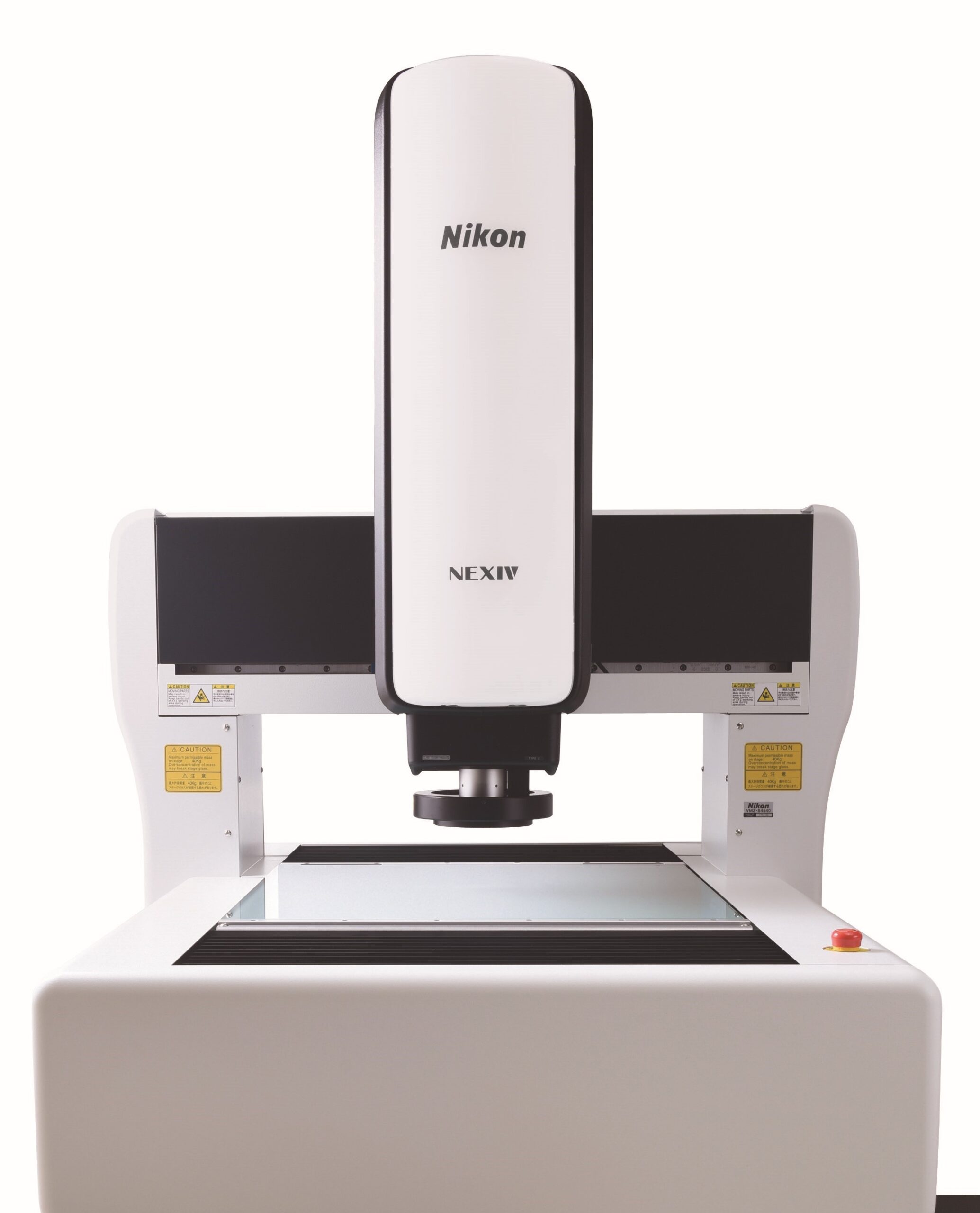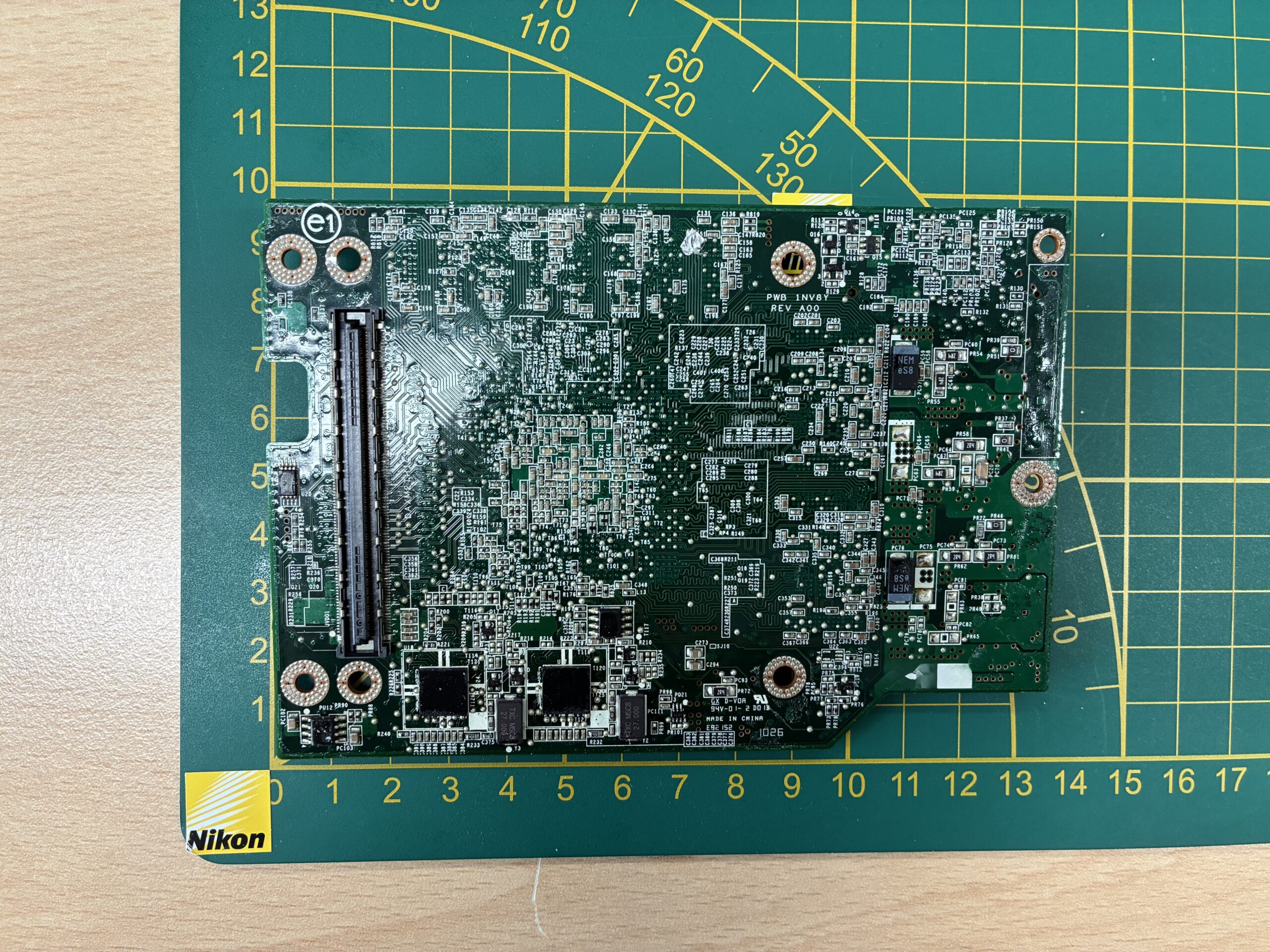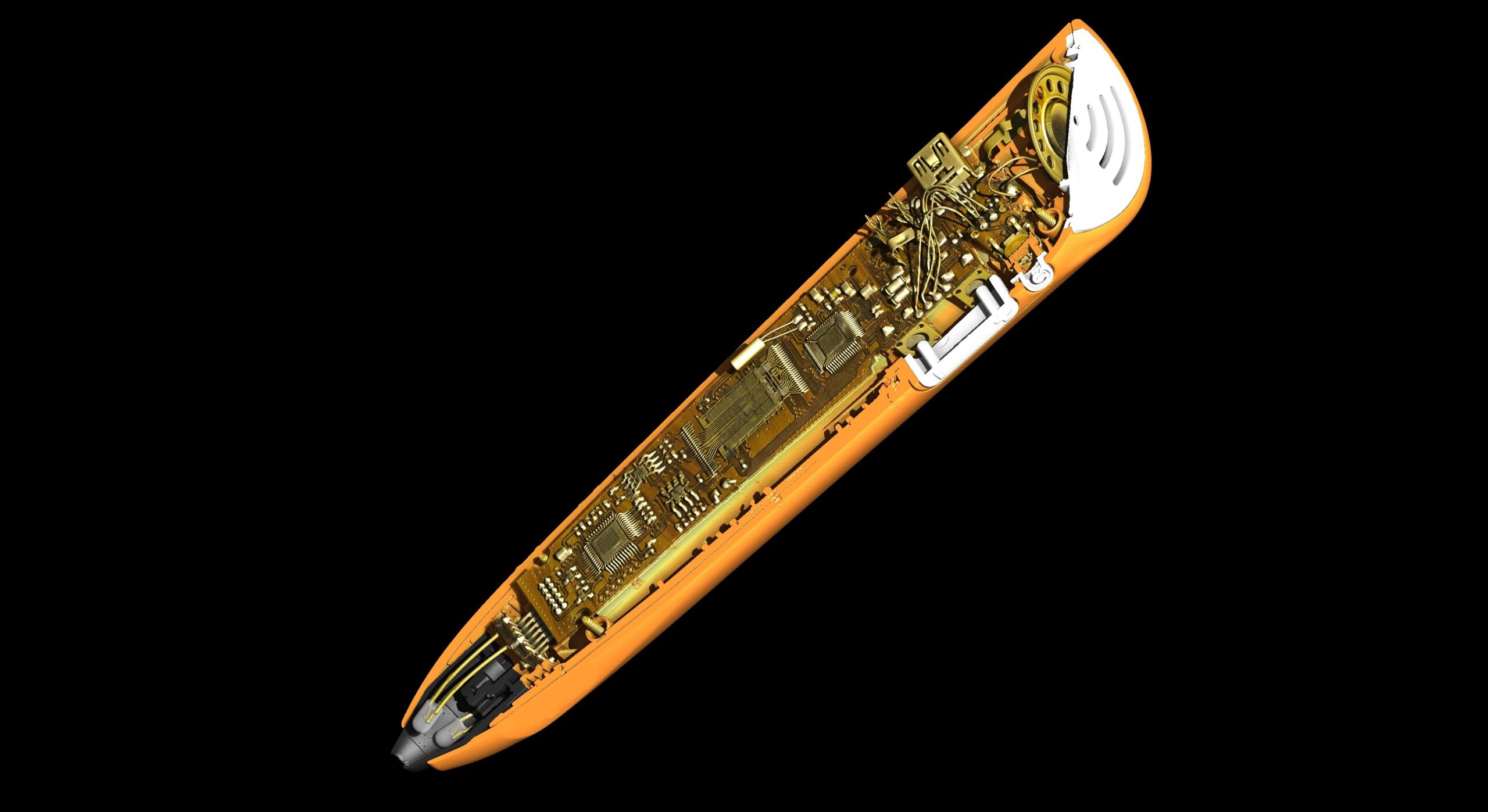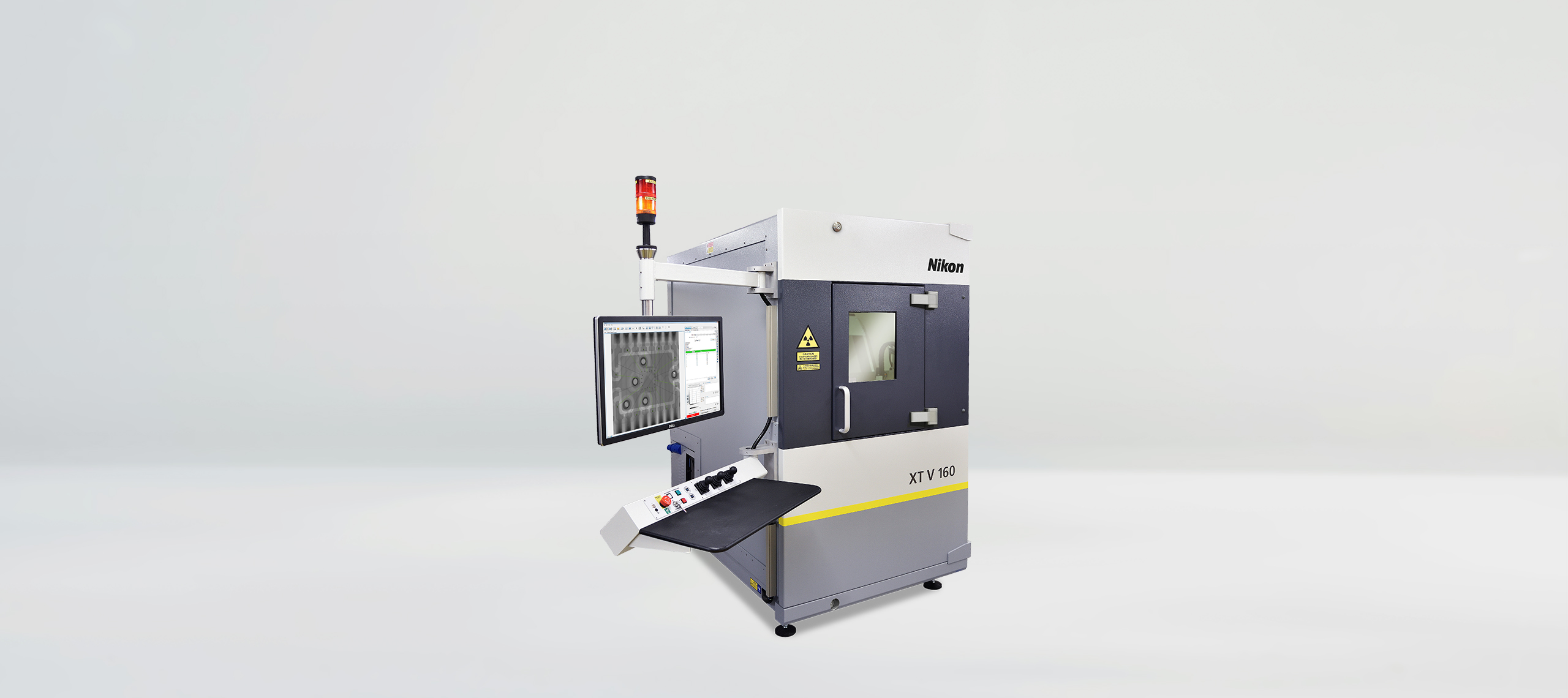The University of Plymouth has become home to the first 5G interactive microscope labs in Europe.
The facility will transform the learning experience of students on a number of its science courses, including earth sciences, geography, environmental sciences and marine biology.
The microscopes will enable students to look at a range of geological and biological samples – such as rock samples, pollen grains, microfossils and marine species – in greater detail than they would ever have been able to previously.
It will also enable students to use the latest microscope technology to explore the fundamentals of the planet’s structures and lifeforms, and how they have changed in line with adaptations in the climate.
Comprising 150 microscopes, the labs have been used by new students arriving at – and returning to – the University this September.
The labs have been created through a partnership between the University and two global technology companies, Nikon and Ostec Instruments.
They also reflect recent changes to courses within the University’s School of Geography, Earth and Environmental Sciences and School of Biological and Marine Sciences that have made their content even more closely aligned with the United Nations Sustainable Development Goals.
Professor Kevin Jones, Executive Dean of Science and Engineering at the University of Plymouth, said: “These new labs will transform our teaching and revolutionise the learning experience for our students. They will get to explore a wider range of specimens in greater detail than ever before, learning the fundamentals of life on earth and how climate change is shifting the physical properties of our planet. By getting the opportunity to use cutting edge technology, our students will also gain first-hand experience of using systems that will either match – or in many cases exceed – those they will work with once they graduate.”
Across two spaces in the University’s Davy Building, students will now have access to 60 polarising microscopes and 20 biological microscopes, as well as 60 low-power microscopes used to analyse larger specimens.
In addition to the microscopes themselves, each stand will have a digital screen that can be linked to others across the room so the same content can be shared across all screens.
The lecturer will have their own camera set up linked to screens on each of the microscope stands, and the screens will also display QR codes, so that students can bring up details of what they have been looking at on their mobile devices.
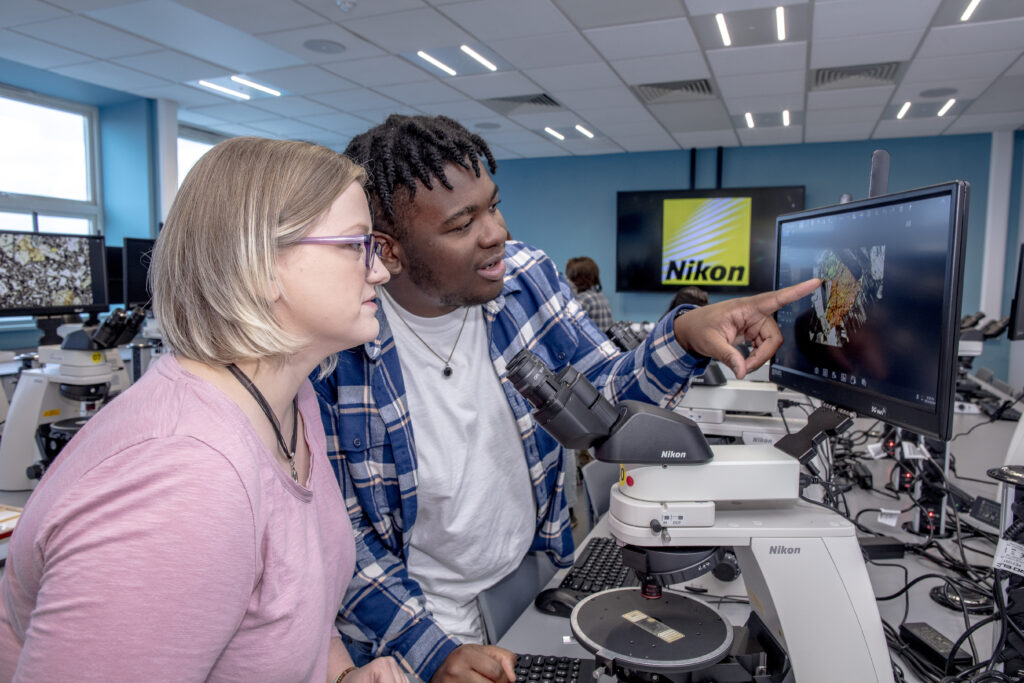
The combination of microscope and screen displays, as well as desks of adjustable height, will also make the set-up more accessible to students with sight or mobility difficulties.
John Moore, European Sales Director for Microscopy at Nikon, said: “Nikon Metrology pride themselves on creating smart solutions which offer universities the ability to enhance the student learning experience with quality Nikon Optics and knowhow. We are very pleased to see leading-edge Nikon microscopes being part of the first 5G interactive microscopy laboratories.”
For more information about this news release, contact University of Plymouth Media & Communications Officer Alan Williams on 01752 588004 or email [email protected].
On behalf of:
Nikon Metrology Europe EV
Interleuvenlaan 86, B-3001 Leuven, Belgium.
Contact: Alice Liu, Marketing Manager, Microscopy Business Unit Europe
Email: [email protected]
Web: www.industry.nikon.com
About the University of Plymouth
The University of Plymouth is renowned worldwide for its high-quality research, teaching and innovation. With a mission to Advance Knowledge and Transform Lives, the University drives the global debate in disciplines from marine and maritime to medicine, law, computing and climate action.
With a city centre campus and further state-of-the-art facilities spread across Plymouth and beyond, plus Devon and Cornwall’s stunning coast and countryside on the doorstep, the University provides a unique blend of urban and outdoor lifestyle opportunities for everyone who studies and works here. A three-time winner of the Queen’s Anniversary Prize for Higher and Further Education – most recently in respect of its pioneering research on microplastics pollution in the ocean – Plymouth consistently ranks among the world’s leading universities for its innovation, research and teaching in relation to the United Nations’ Sustainable Development Goals.
Plymouth’s teaching and learning excellence is reflected in one of the highest numbers of National Teaching Fellows of any UK university. With over 18,000 undergraduate and postgraduate students, plus a further 7,000 studying at partner institutions in the UK and around the world, and over 140,000 alumni pursuing their chosen careers internationally, the University of Plymouth has a growing global presence.
